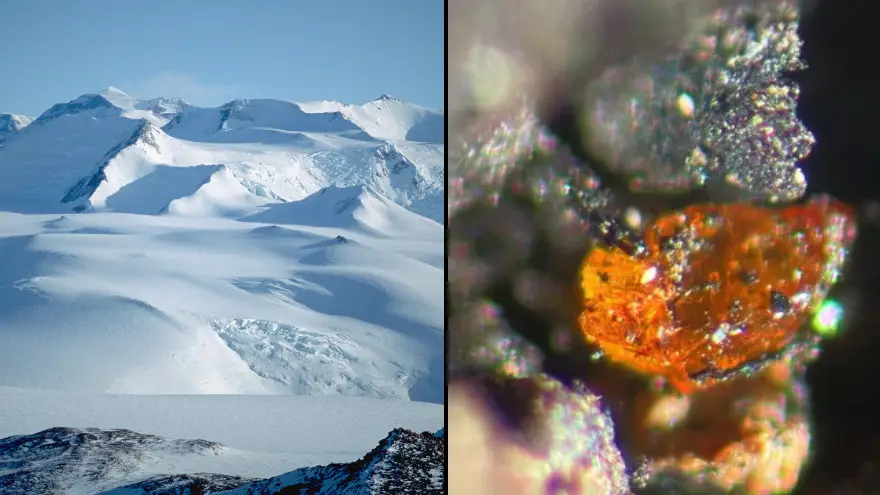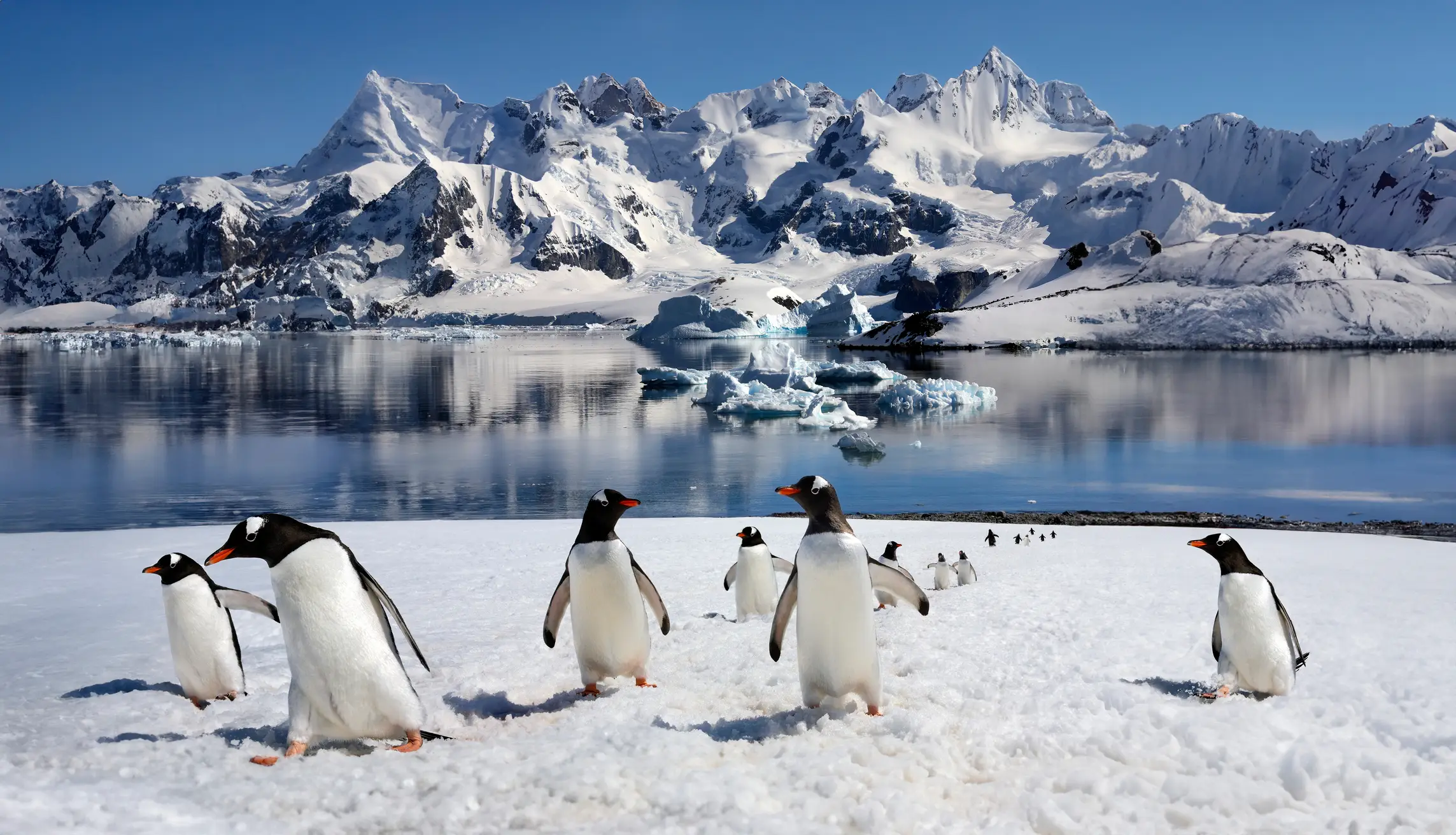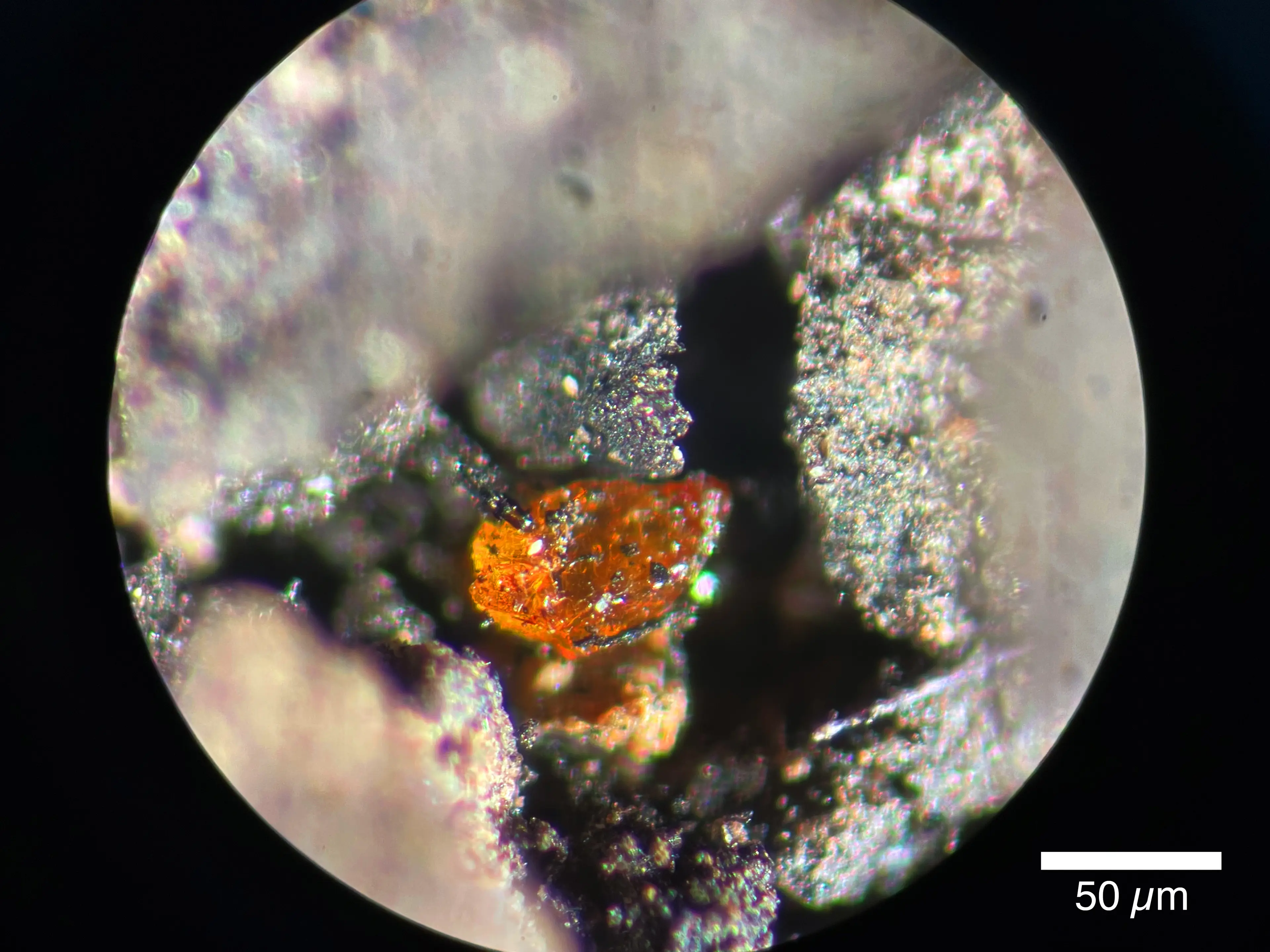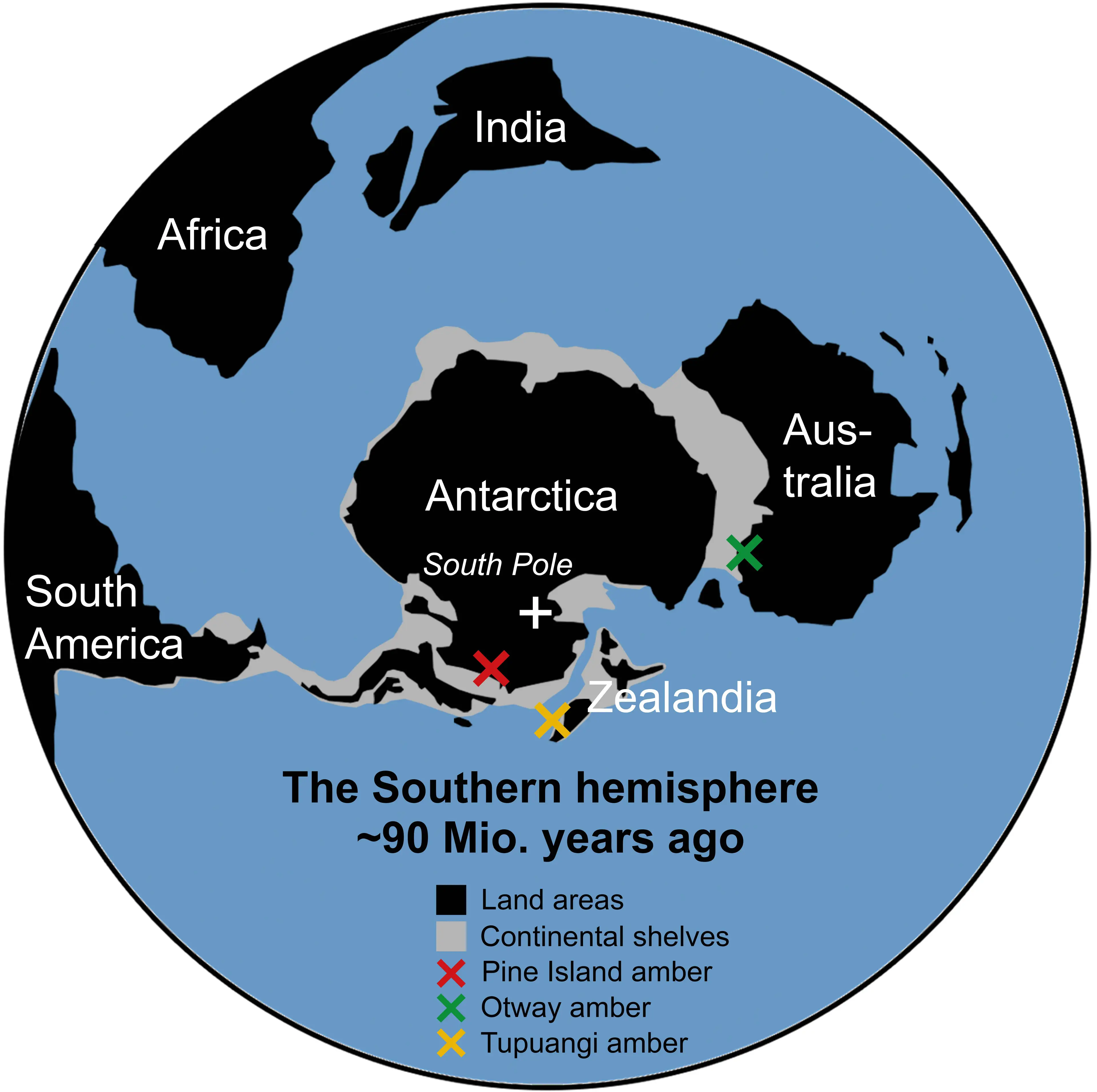
A 90-million-year-old fossil could definitively change everything we know about the history of Antarctica.
What do you think when someone says the words 'Antarctica' or 'South Pole'? It's most likely extreme cold, penguins and maybe even the Drake Passage - if you're familiar with a certain area of TikTok.
However, we'd imagine that rolling rainforests and lush greenery isn't on that list.
Well, it looks like things haven't always been that way.
Advert

The argument that Antarctica harbours more than just mounds of snow and ice isn't anything particularly new. With numerous conspiracy theorists over the years peddling the ideas such as secret mega civilisations, secret bunkers for global elites, Game of Thrones-esque ice walls and even a gateway to the inside of Earth doing the rounds over the years.
While the above are hardly much more than evidence that a lot of people have a very over-active imagination, there is emerging evidence in the scientific community which suggests the barren landmass wasn't always completely frozen over.
The latest evidence to support this theory comes courtesy of scientists in Germany, who have revealed they have discovered the presence of amber on the west side of the continent.

Now, this may not sound as exciting as lizard people or ice pyramids, but is nonetheless a very important piece of evidence when it comes to decoding Antarctica's past.
Amber is formed from resin found in tree bark, which has since fossilised and hardened for more than 40,000 years.
Pretty cool, huh?
"It was very exciting to realise that, at some point in their history, all seven continents had climatic conditions allowing resin-producing trees to survive," Johann Klages, study lead and marine geologist at the Alfred Wegener Institute, said of the discovery.
Explaining what's next for researchers, he added: "Our goal now is to learn more about the forest ecosystem – if it burned down, if we can find traces of life included in the amber.
"This discovery allows a journey to the past in yet another more direct way."

The existence of amber on the continent also confirms that trees would have once stood in its place, with the ancient discovery suggesting a swampy and temperate rainforest once stood in this location.
Amber isn't the only evidence of life on the continent either, with previous discoveries from scientists including fossils of roots, pollen and spores.
The 90-million-year-old date means the trees likely stood during the cretaceous period.
Spanning a period of time 145 million to 66 million years ago, the cretaceous period was a time where the Earth was a lot warmer than it is today, while the landmass known as Pangea has already broken apart and begun to form the continents we're more familiar with.
Topics: Environment, History, World News, Science